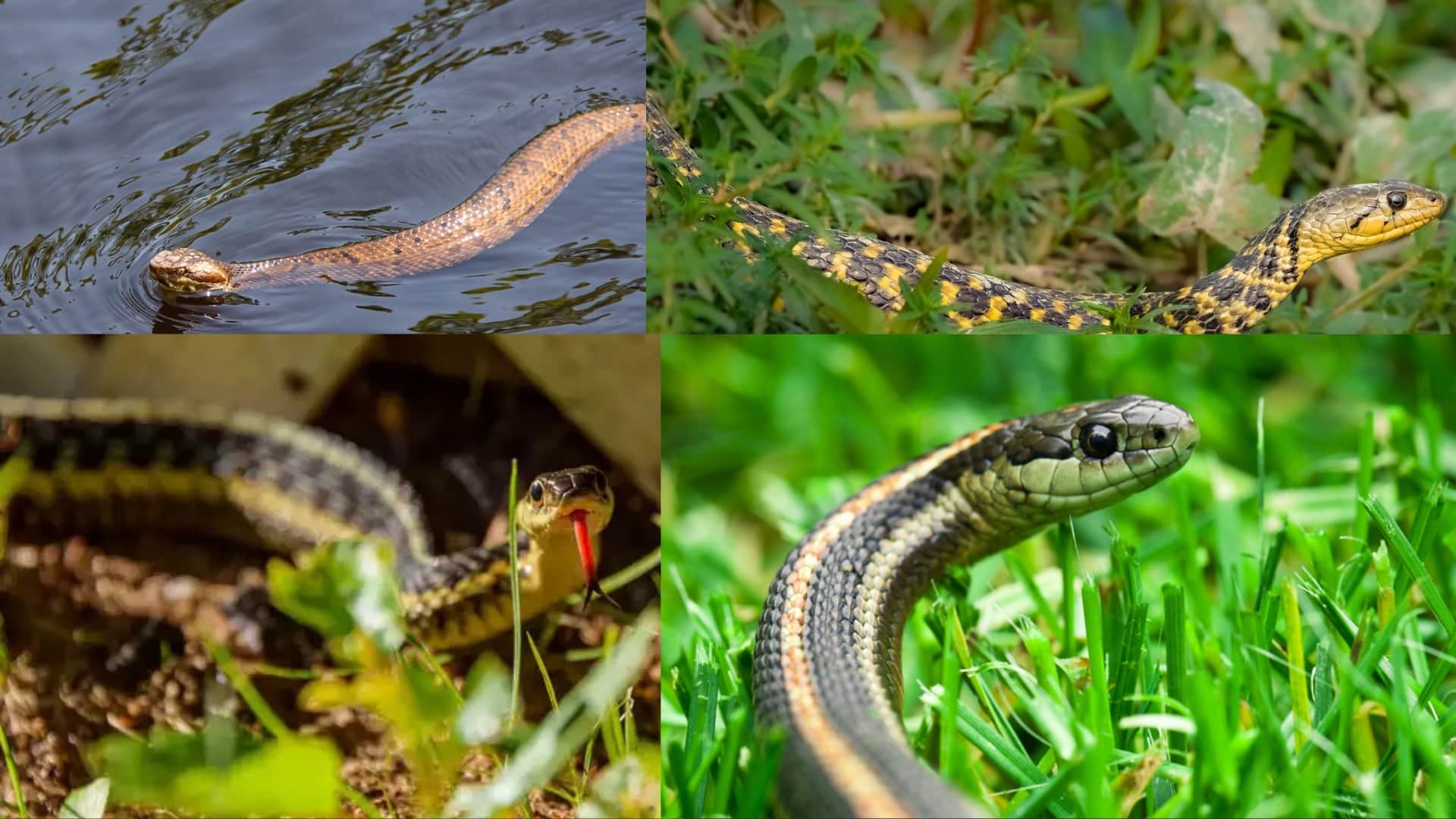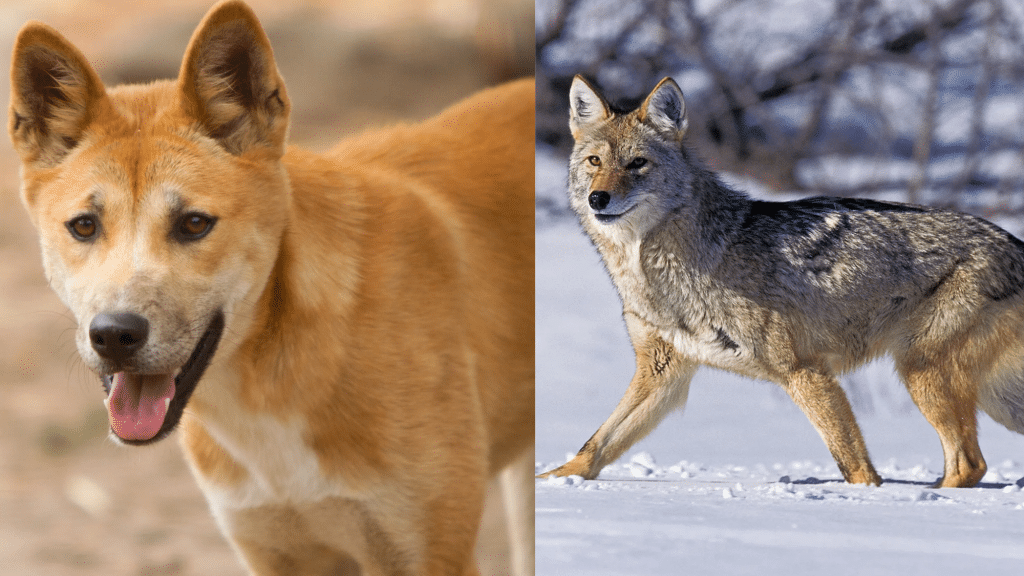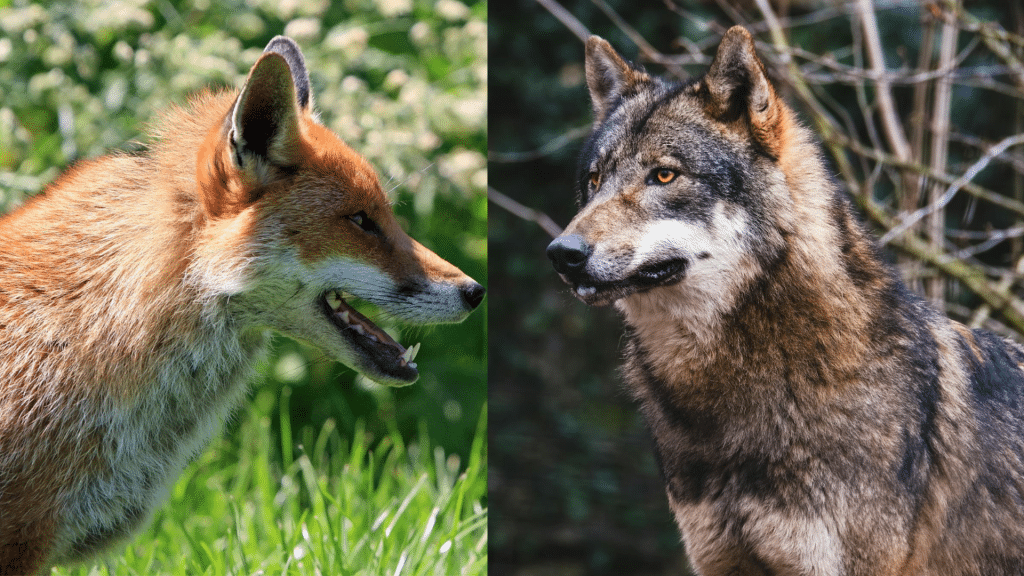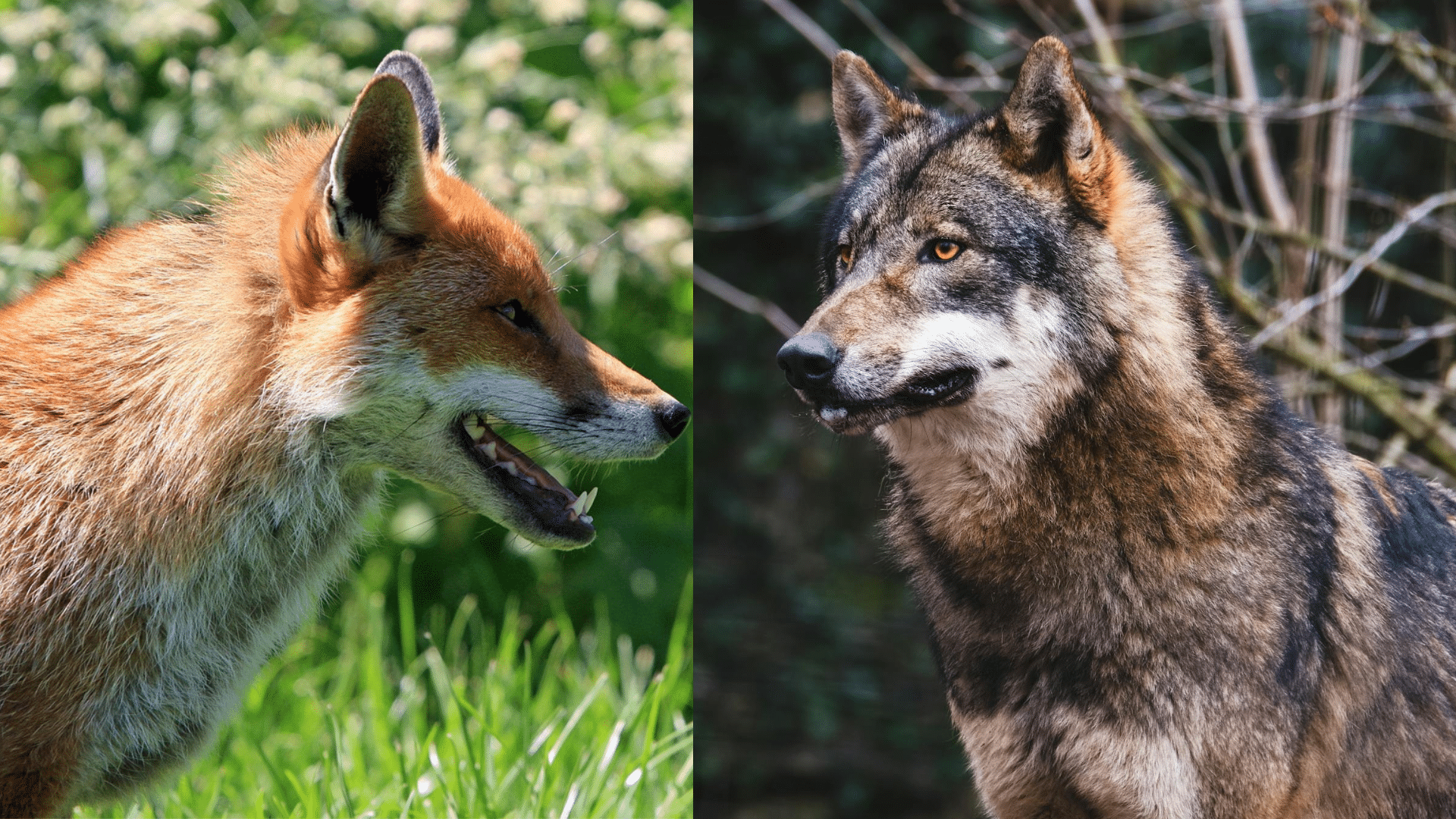Have you ever seen a snake suddenly slither away when you move a log or walk through tall grass?
That’s because snakes are really good at hiding! They need to hide to stay safe from animals that might hurt them.
They also hide to catch their food and to keep their bodies at the right temperature.
Snakes like dark, quiet places where they won’t be disturbed. If you know where snakes like to hide around your yard, you can check those spots and make changes to keep them away.
Let’s look at the most common places snakes hide in yards and gardens.
Outdoor Places Where Snakes Hide
Snakes seek out safe, quiet places outdoors where they can hide from predators and easily find food.
These spots often provide shade, shelter, and warmth that snakes need to survive.
1. Under Rocks and Logs
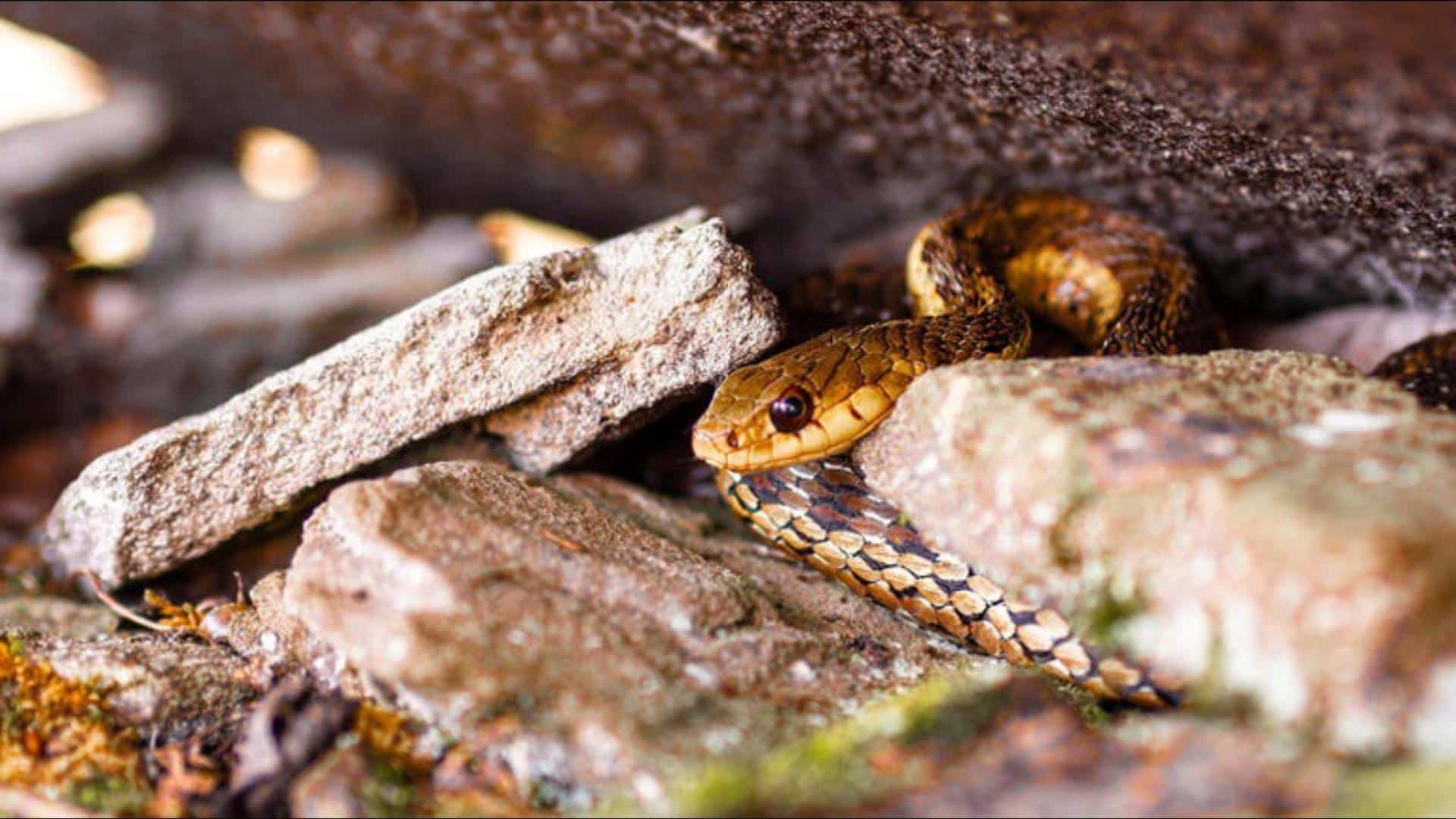
Snakes often hide under rocks and logs because these spots give them cool shade and protection. The space beneath stones and logs helps snakes stay hidden from birds and other animals.
These places also help snakes control their body temperature by keeping them cool during hot days or warm when it’s cooler outside.
2. In Thick Grass, Weeds and Leaf Litter
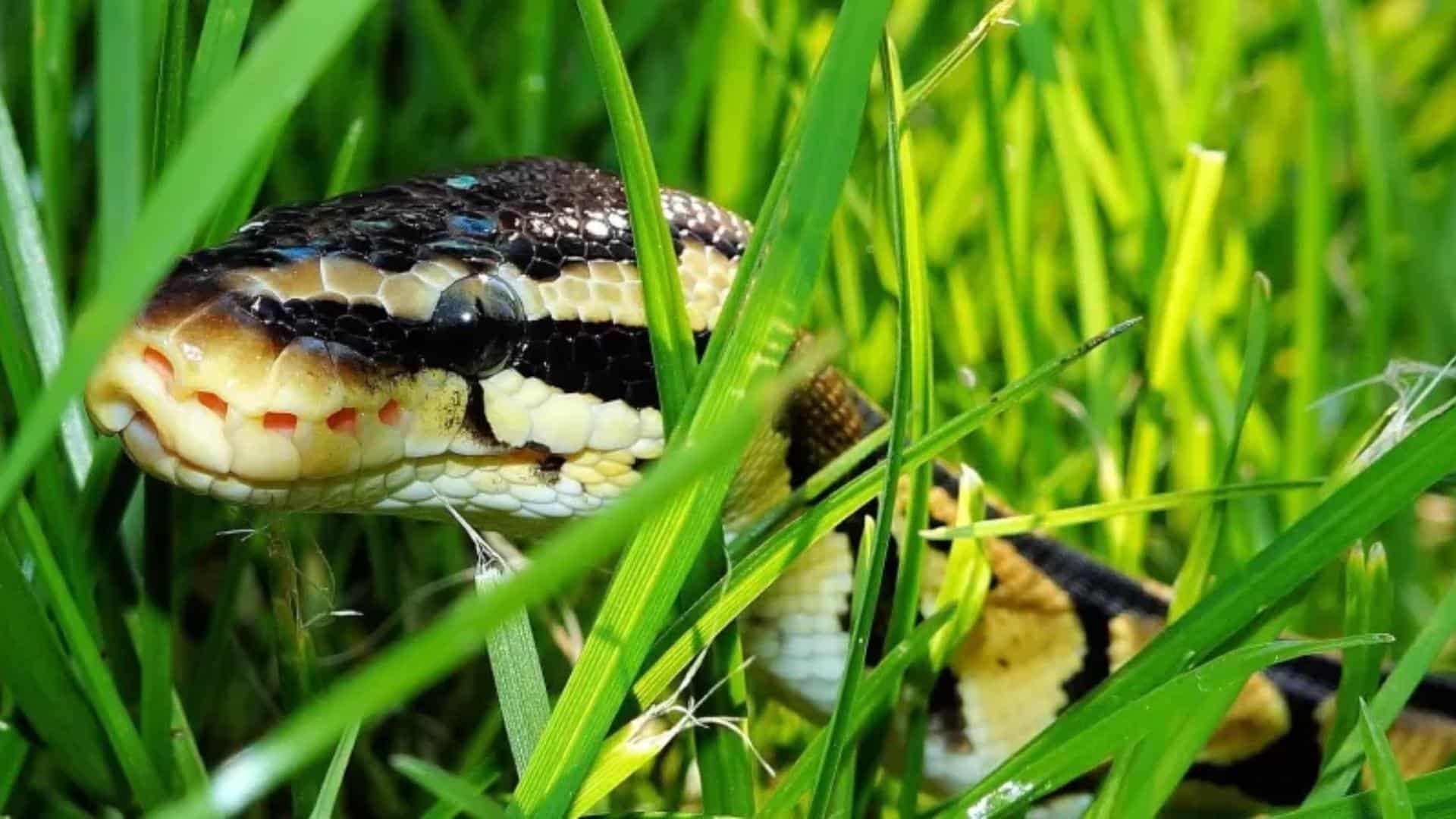
Tall grass, weeds, and piles of leaves offer snakes good cover. These areas keep snakes hidden while they wait to catch small animals like insects and rodents.
Leaf litter also helps snakes stay moist and protected from the sun, making it a comfortable place to stay during the day.
3. Compost Piles, Mulch and Woodpiles
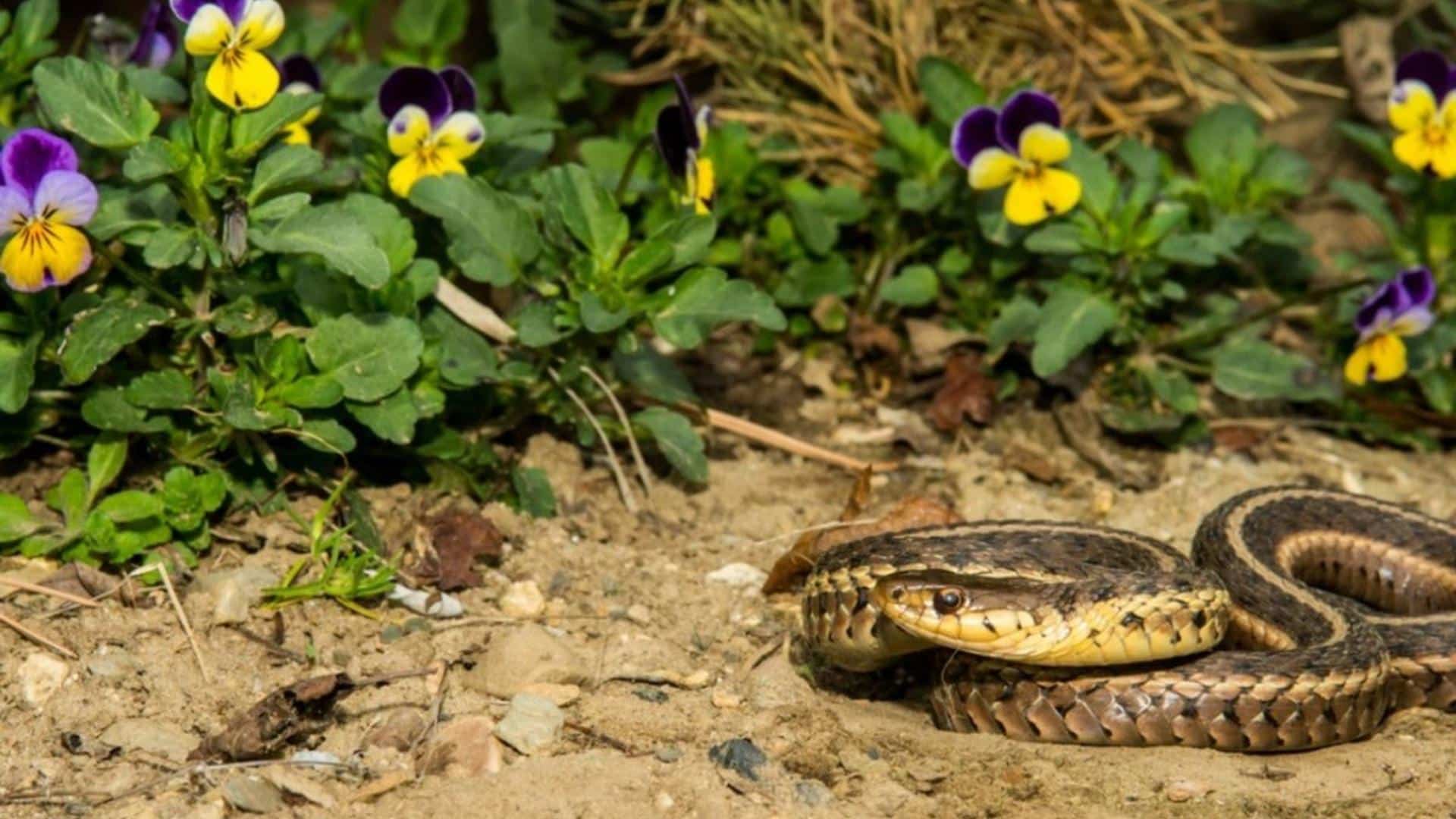
Compost piles and mulch are warm and attract insects and small rodents. Snakes hide here because it is a good food source, and the piles provide many small hiding spots.
Woodpiles are also popular because snakes can easily find tight spaces to rest and stay safe.
4. Around Garden Beds, Flower Pots and Shrubs
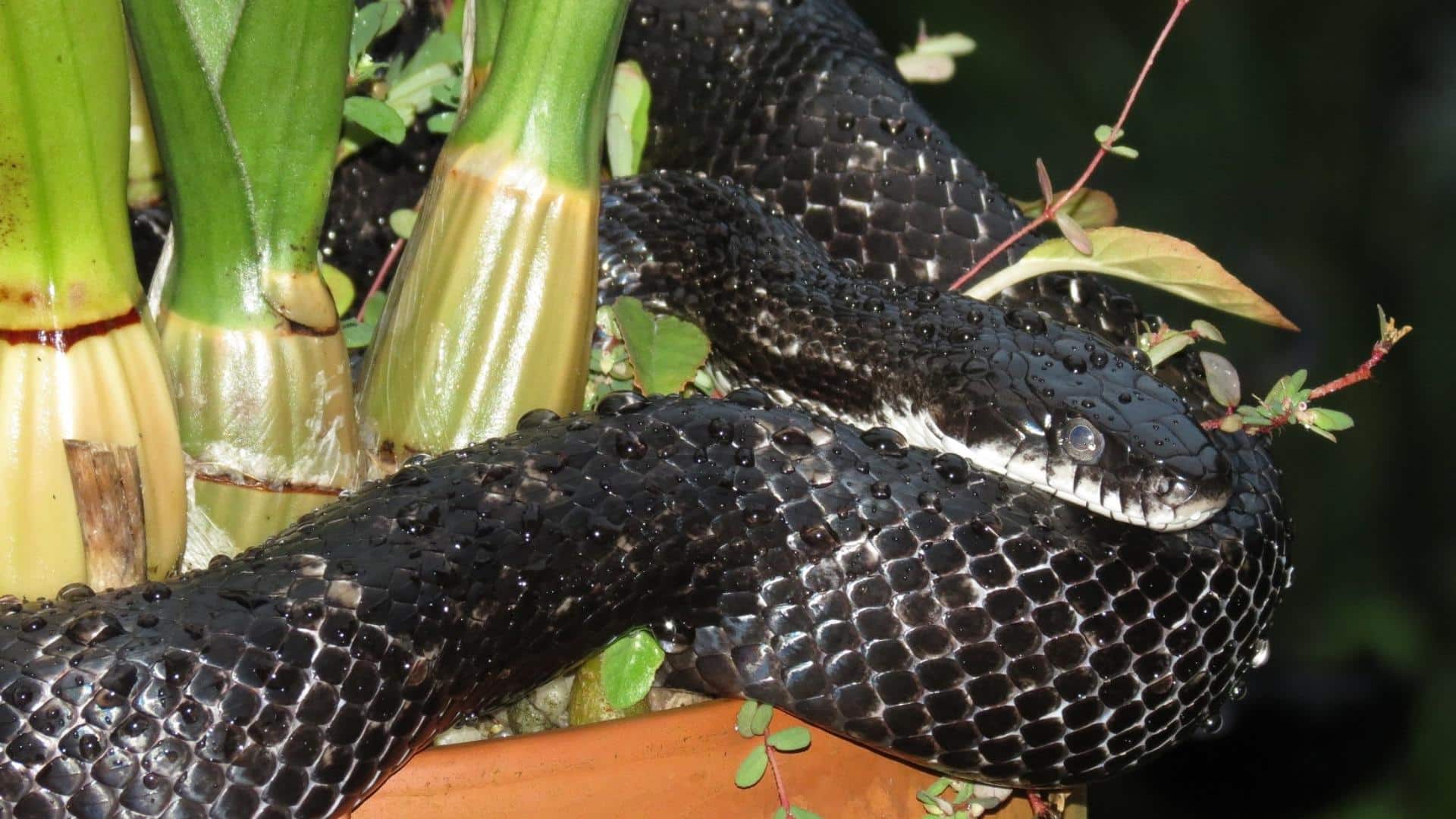
Garden beds, flower pots, and shrubs provide snakes with shelter and shade. The soil and plants attract frogs, insects, and rodents, which are food for snakes.
These spots create a quiet, protected area where snakes can stay hidden and hunt safely.
5. Under Garden Structures and Debris
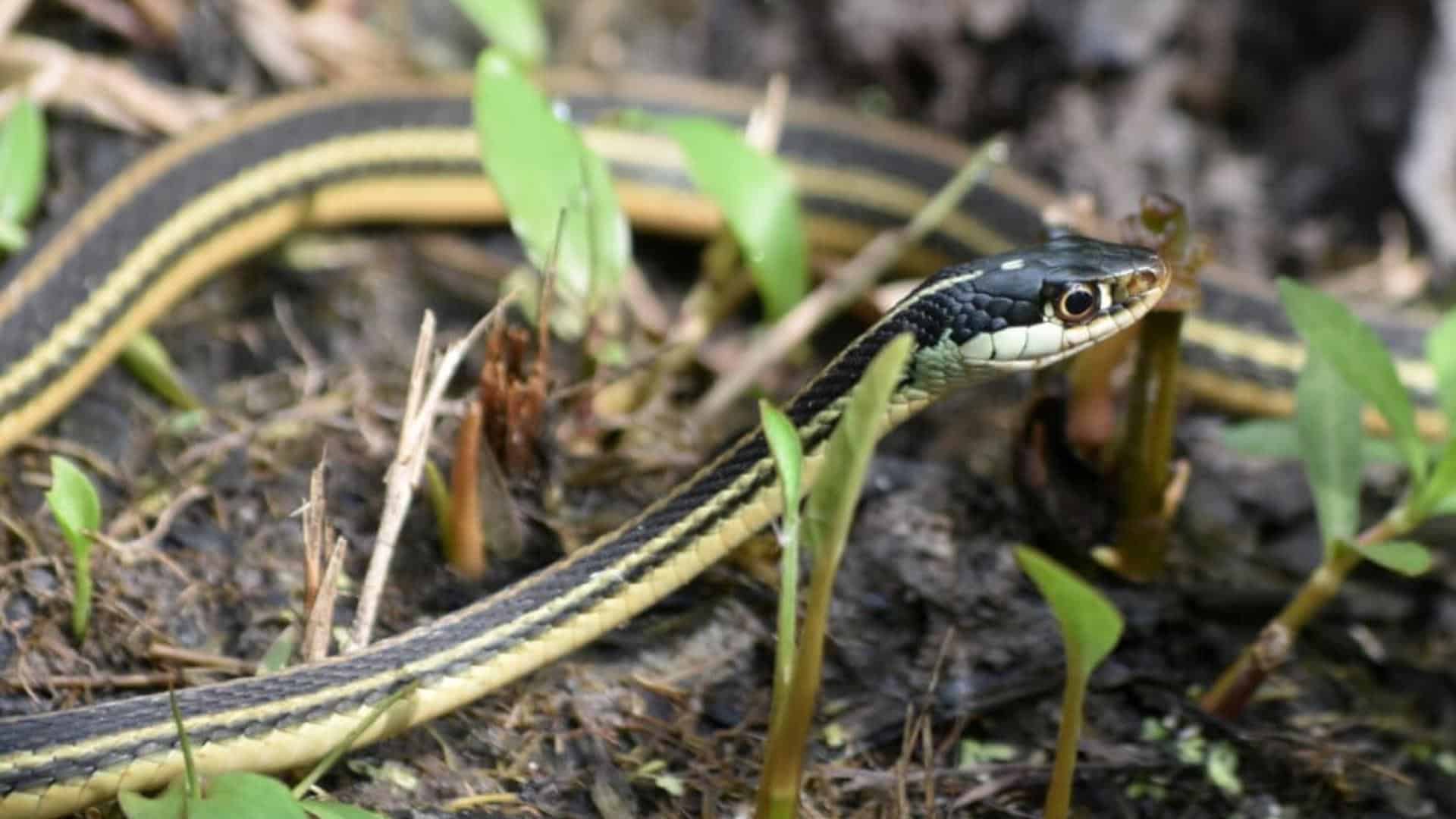
Snakes hide under garden sheds, piles of bricks, and old building materials because these places are dark and undisturbed. Such spots offer protection from predators and the weather.
It is essential to keep these areas clean to prevent snakes from inhabiting your yard.
6. Near Water Sources
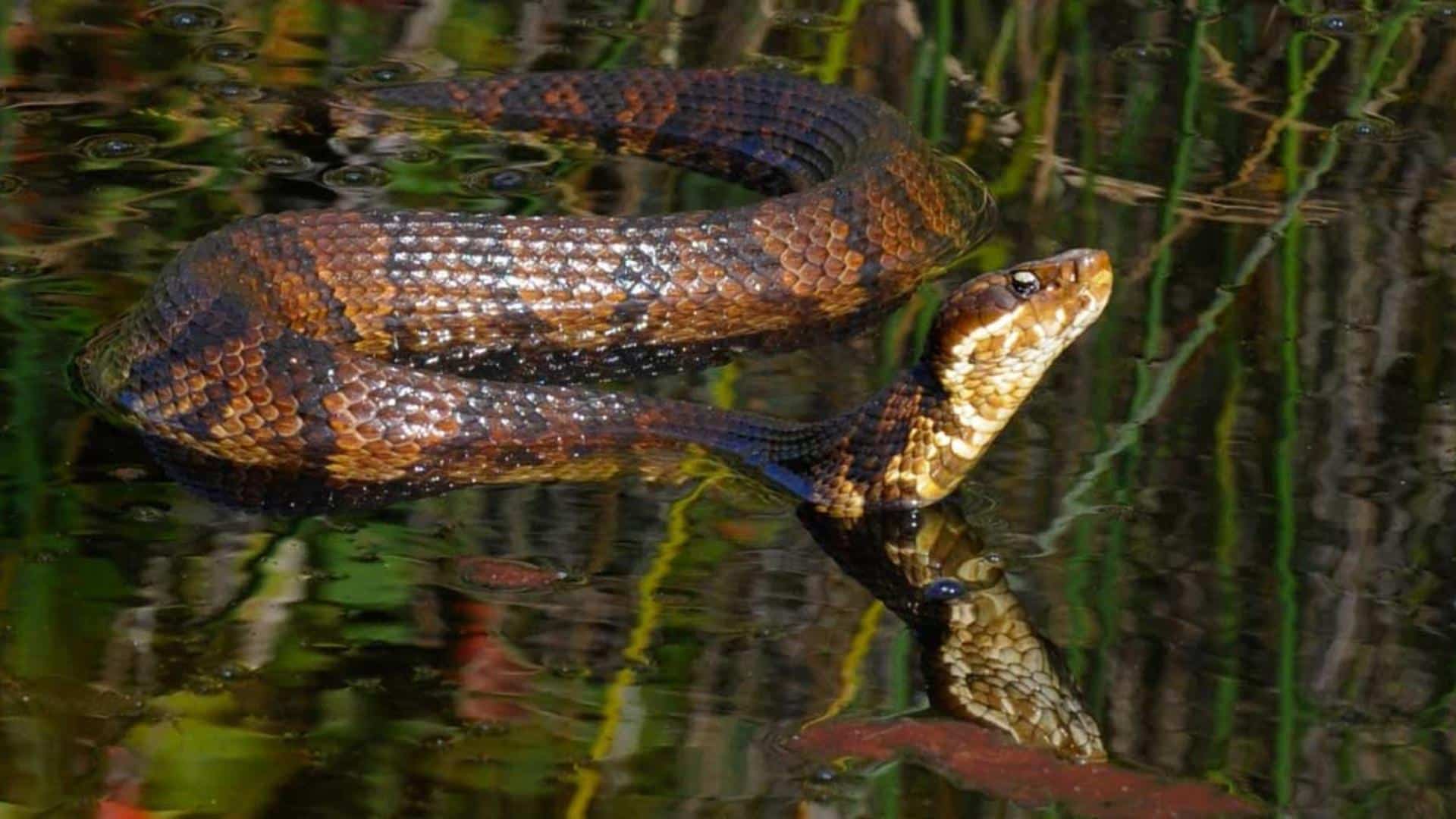
Snakes are often found near water sources because water attracts their prey, like frogs and insects.
Moist areas near ponds, birdbaths, and drainage spots also provide cool hiding places for snakes. These wet spots help snakes stay hydrated and safe.
7. Inside Animal Burrows and Rodent Holes
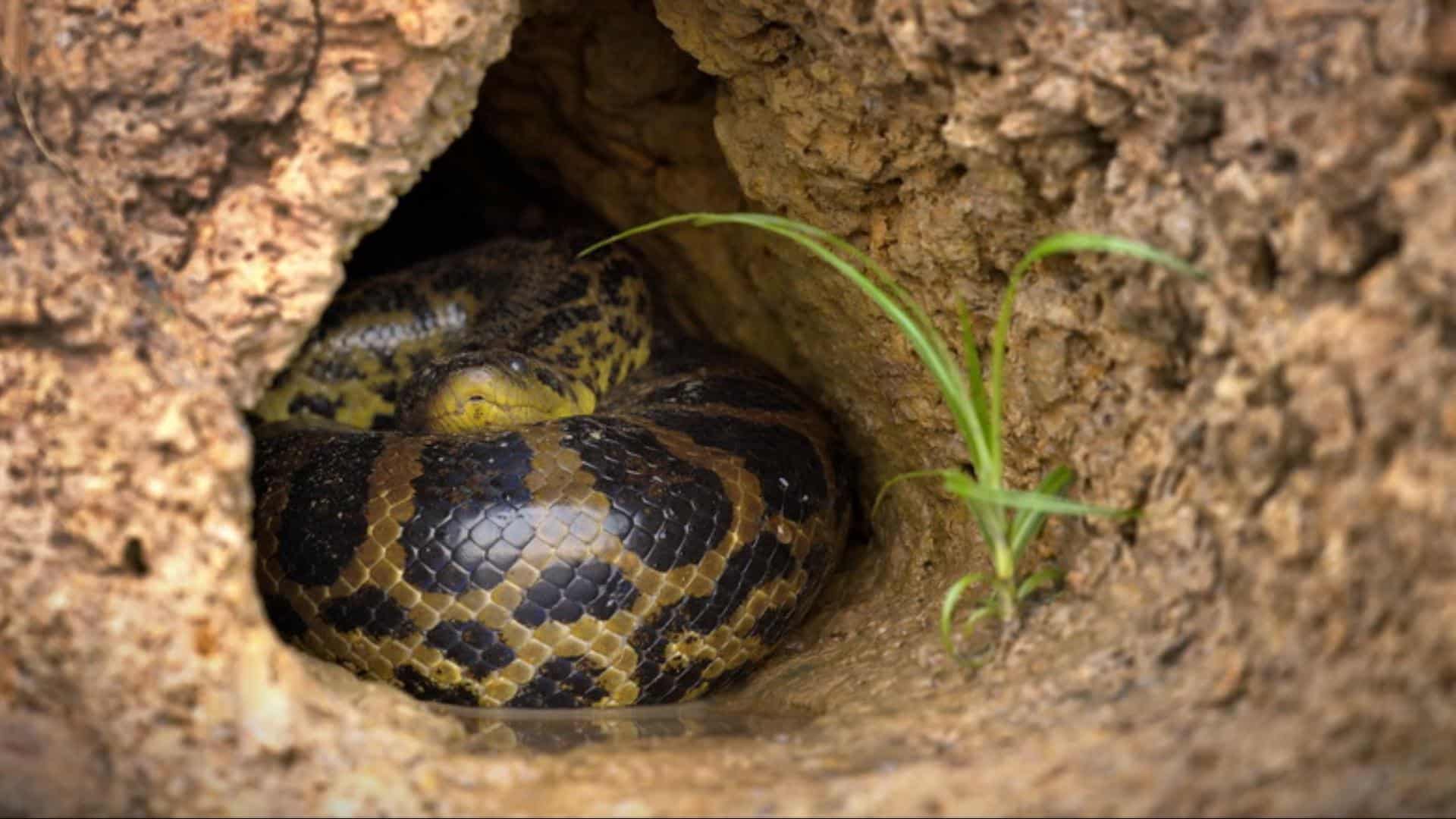
Many snakes use old burrows and holes made by rodents or other small animals to hide and rest.
These tunnels offer safe, dark shelters where snakes are protected from the sun and predators. The presence of rodents also provides a ready food supply.
8. In Tree Hollows, Hollow Logs and Stumps
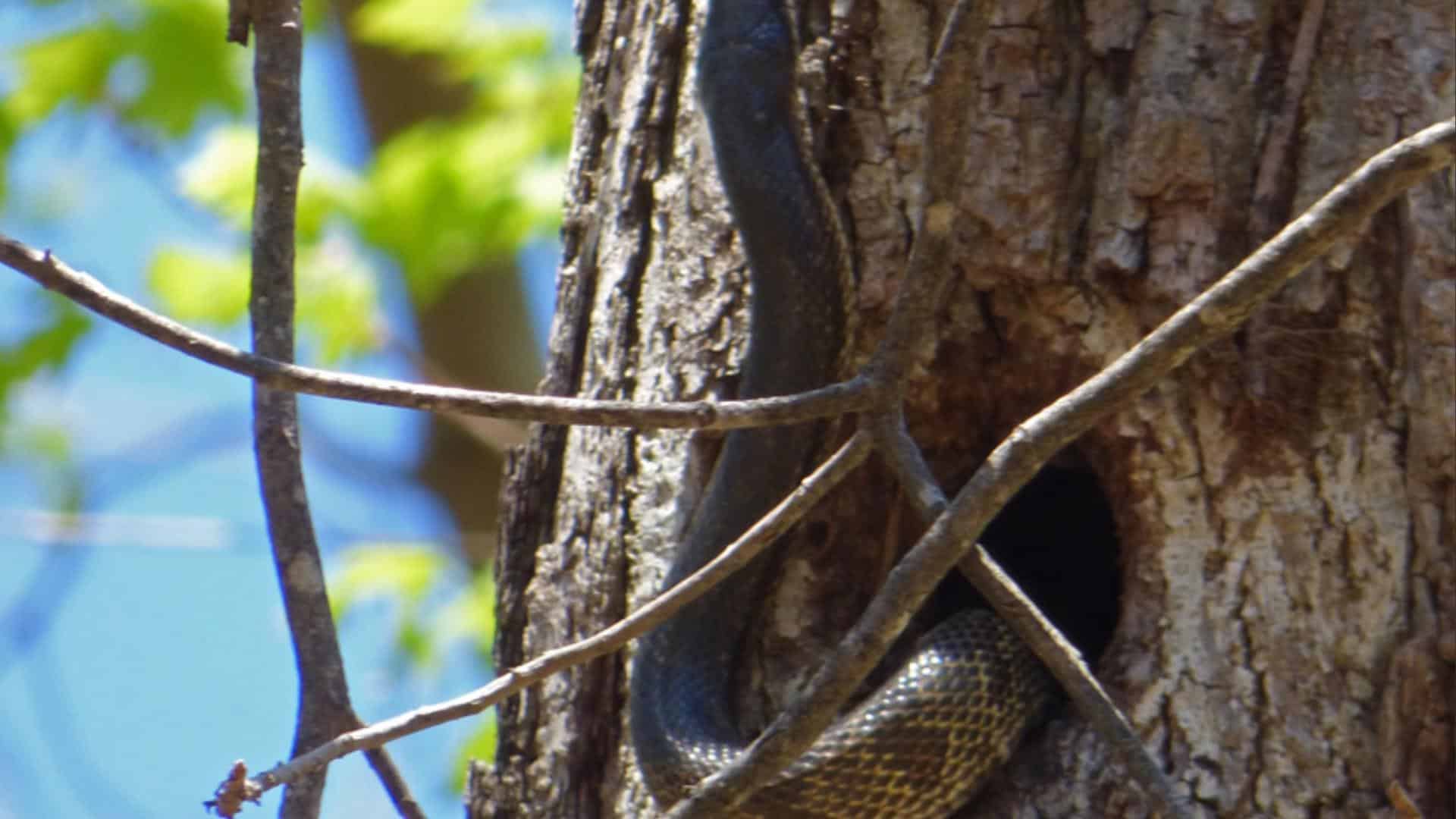
Some snakes hide in tree hollows, hollow logs, or old stumps. These natural cavities provide shelter from the weather and a safe place to rest.
These hiding spots are perfect for snakes that spend time off the ground or like to climb.
9. In Dense Bush, Thickets and Undergrowth
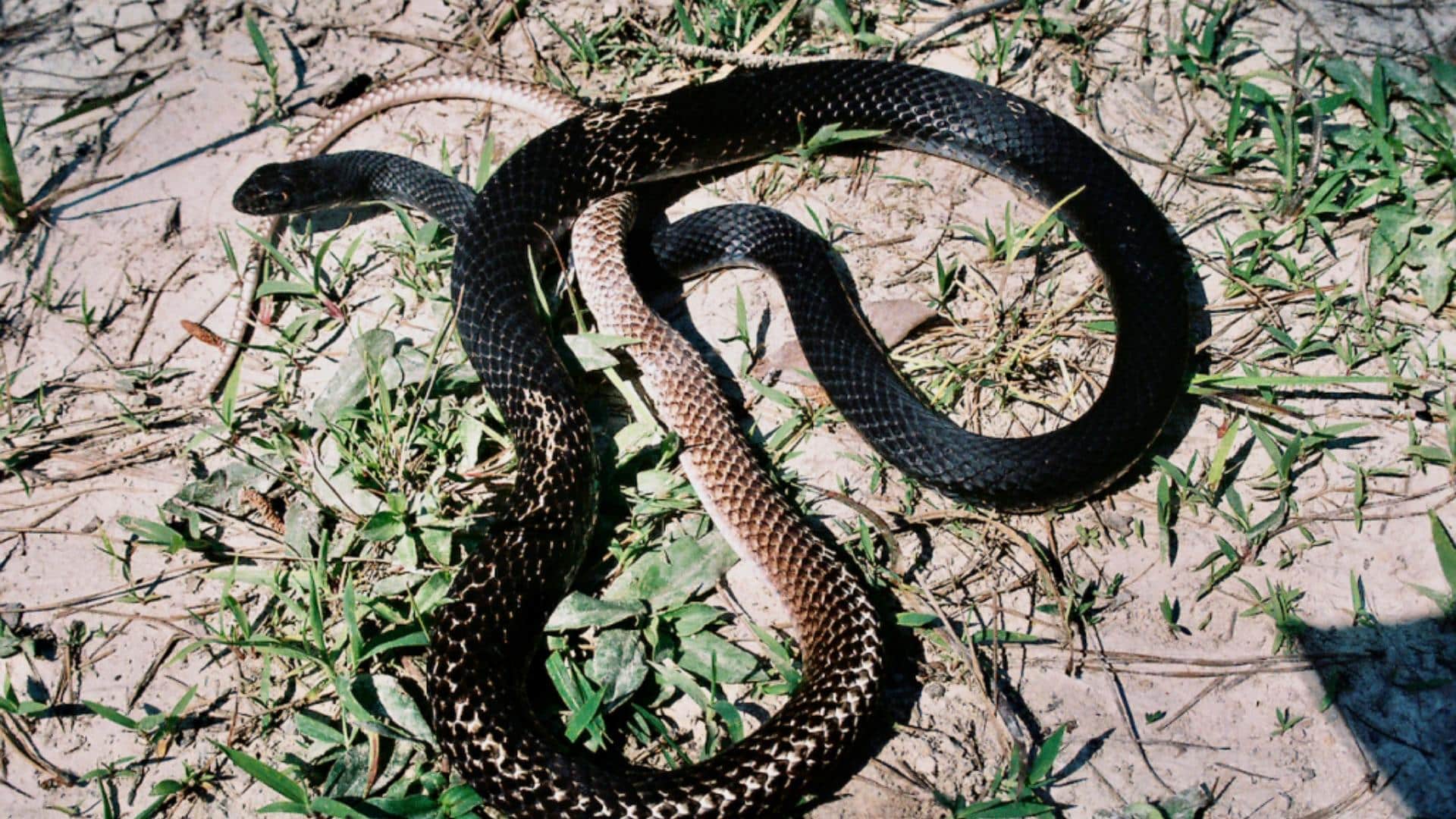
Thick bushes and undergrowth offer snakes good protection from predators and the sun.
These dense areas hide snakes well and give them places to hunt for small animals. Removing overgrown brush can reduce the hiding spots for snakes in your yard.
10. Underneath Outdoor Furniture and Garden Decorations
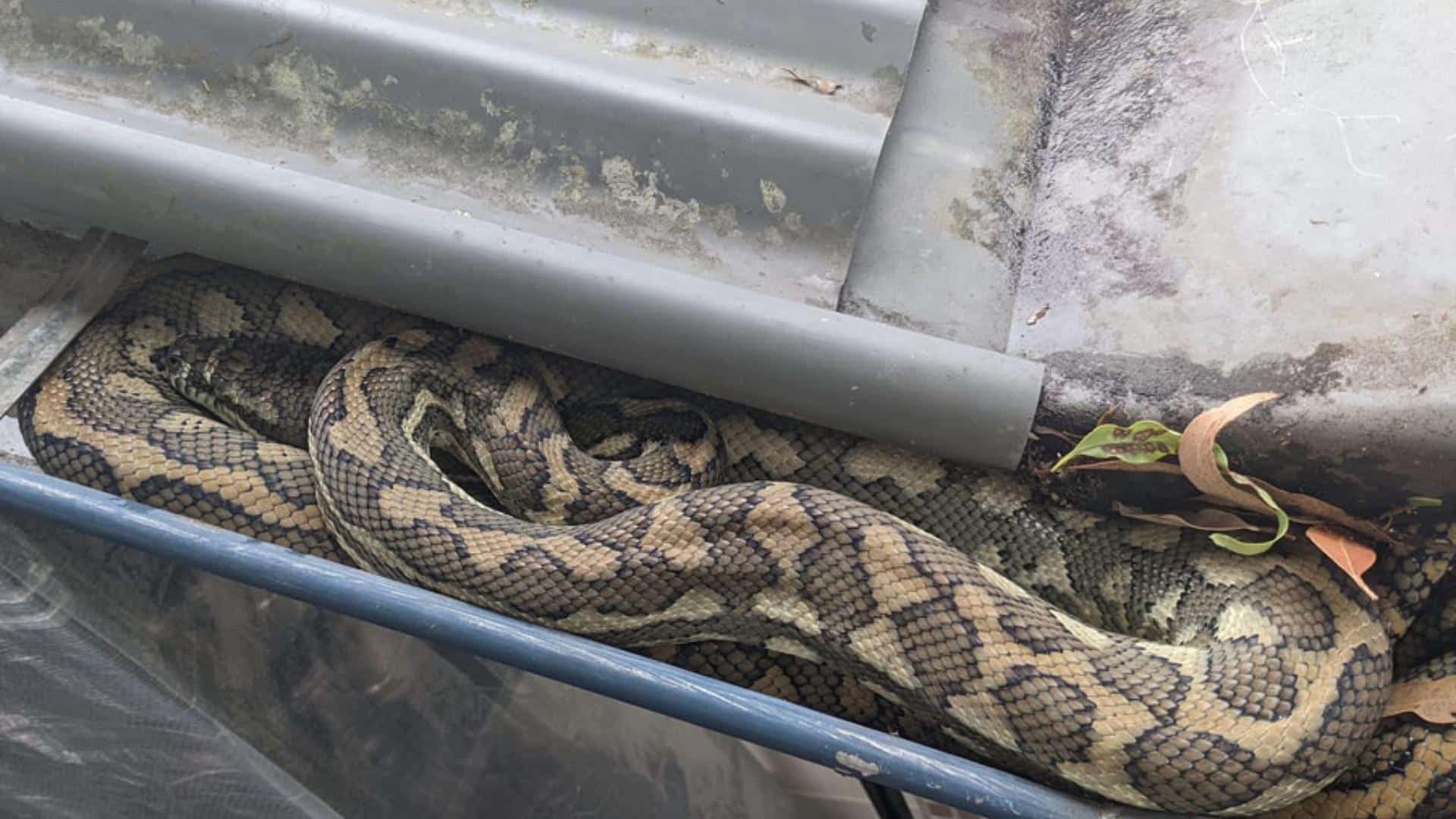
Snakes sometimes hide under benches, tables, pots, or garden statues. These shaded, quiet spots are perfect for snakes to rest during the heat of the day.
Regularly checking under outdoor furniture helps you avoid surprising a snake.
11. In Gutters, Drain Pipes and Narrow Crevices
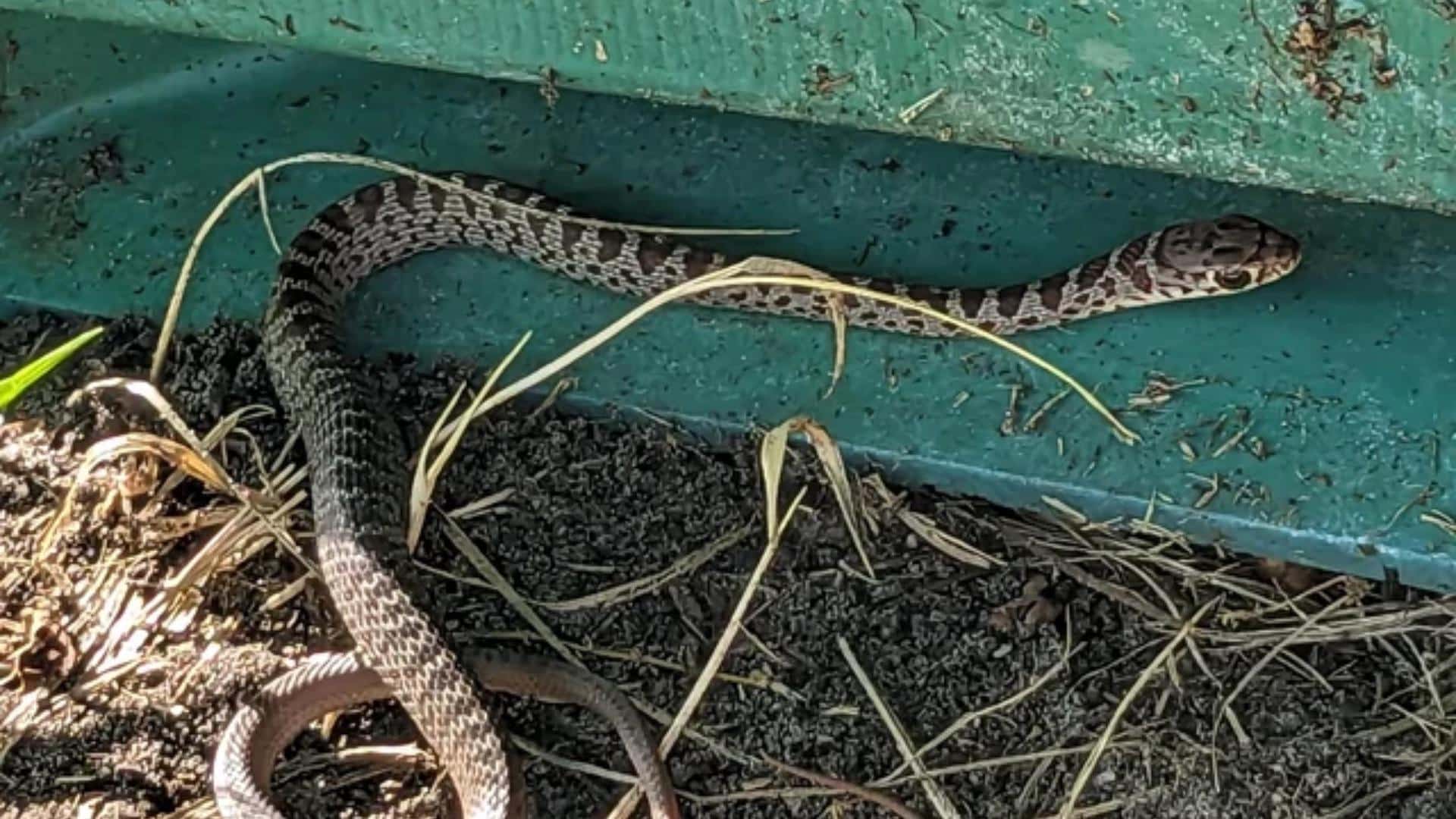
Snakes can also hide in narrow spaces like gutters, drain pipes, and cracks around buildings.
These tight spots are safe and quiet, away from people and animals. It is important to keep gutters and pipes clear to reduce snake hiding places.
Human Activities Which Influence Snake Habits
Human activities have a direct impact on snake behavior by disturbing their habitats and forcing them to adapt or relocate.
These are some of the many reasons that affect snake behaviour:
| Human Activities Affect Snake Behavior | Details |
|---|---|
| Gardening, building, yard work | Disturbs snake habitats |
| Clearing thick plants | Forces snakes to move |
| Moving woodpiles | Causes snakes to relocate |
| Digging and construction | Destroys snake homes |
| Disturbed snakes | May move closer to homes |
| Untidy yards with debris | Provide shelter and food |
| Piles of leaves or trash | Attract rodents and snakes |
| Overall impact | Changes snake behavior and movement |
Tips for Making Your Yard Less Attractive to Snakes
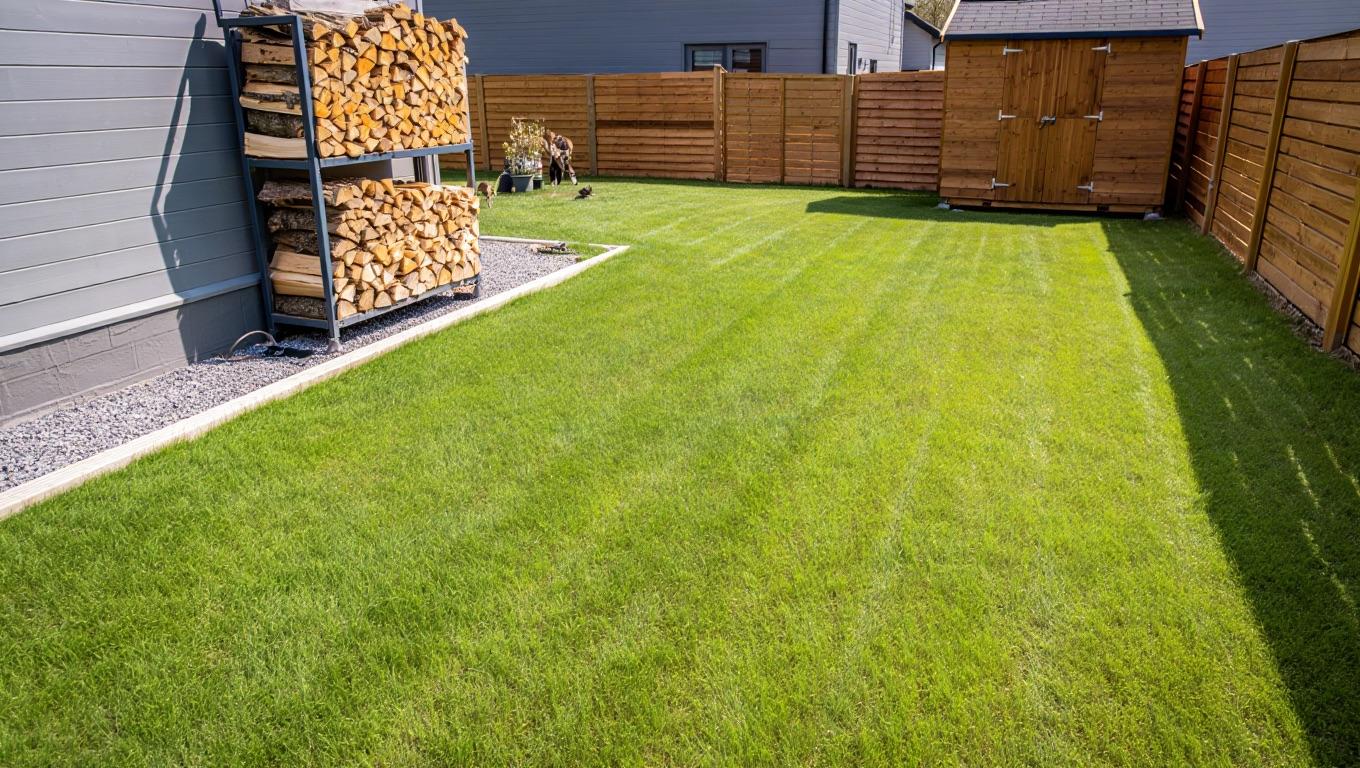
If you want to keep snakes away from your yard, a few simple changes can make your outdoor space less inviting to them.
- Keep grass and weeds trimmed short to remove hiding spots.
- Remove piles of leaves, mulch, and compost regularly.
- Store firewood away from the house and off the ground.
- Seal cracks and holes in foundations, sheds, and fences.
- Clear away old garden pots, tools, and unused equipment.
- Use gravel or rock beds around your home’s foundation.
- Remove bird feeders or keep them clean to avoid attracting rodents.
- Keep pet food indoors to avoid attracting snakes’ prey.
By following these simple steps, your yard will be less likely to attract snakes, creating a safer outdoor space for everyone.
Final Notes
Snakes may seem scary, but now you know they often hide in quiet, cool, or hidden spots like tall grass, woodpiles, and garden debris.
There’s no need to panic when you see one; most snakes prefer to avoid people and only come close when their space is disturbed.
By keeping your yard tidy, you can make your garden less inviting to snakes.
Start with these small changes and enjoy a safer, cleaner outdoor space.

